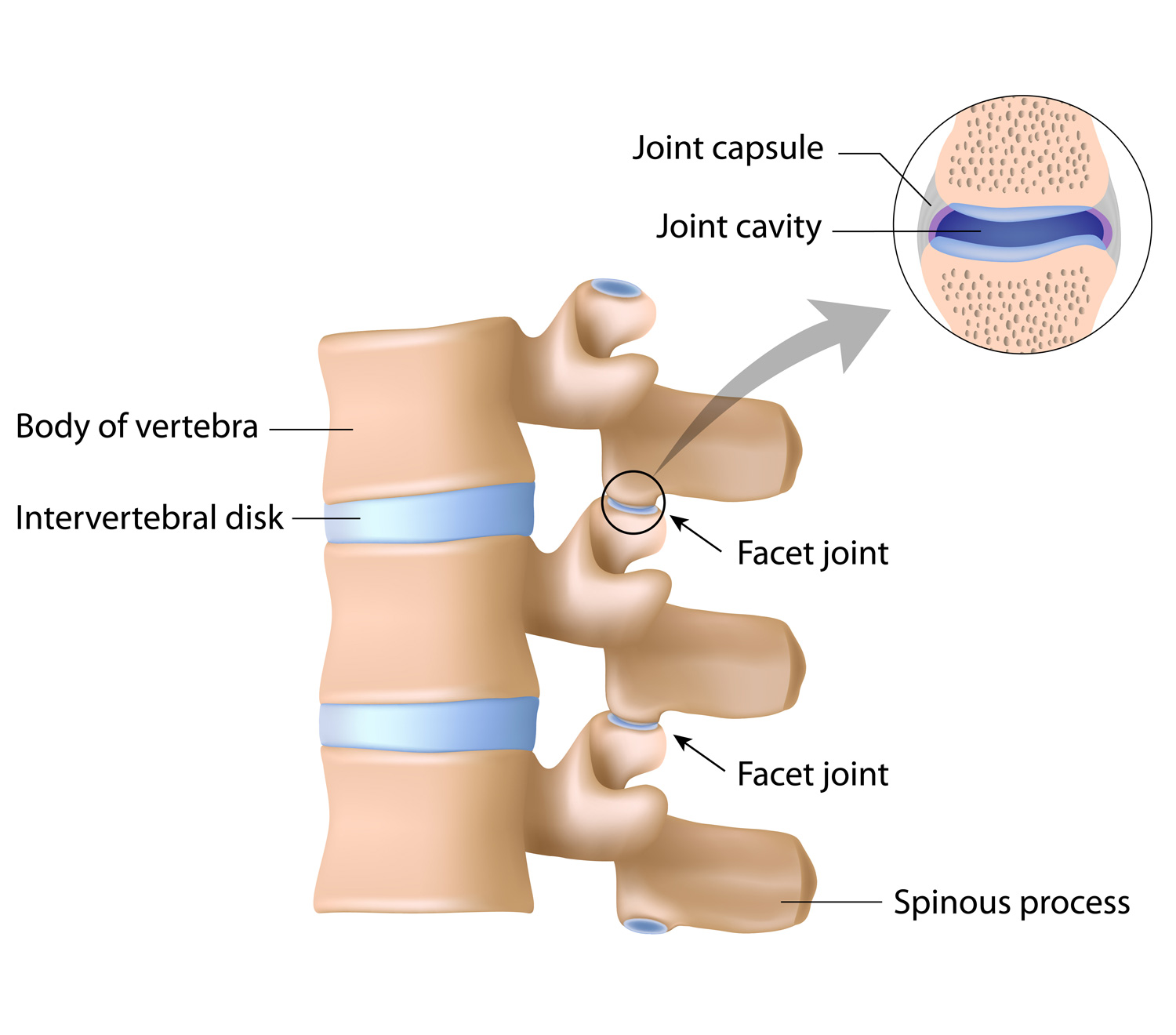Facet Joint Syndrome
Facet joint syndrome affects the spine and is a common cause of lower back pain. It can also affect the thoracic spine (upper back) and cervical spine (neck). These joints are part of your vertebrae and enable your spine to bend and twist. This syndrome develops when something puts a strain on the joints and triggers inflammation and pain.

What are the symptoms of facet joint pain?
Cervical Facet Joint Syndrome: May cause shoulder pain and headaches, as well as neck pain, and make it difficult to move your head around.
Thoracic Facet Joint Syndrome: May restrict spinal movement, so you’re unable to twist above the waist, making it hard to look left or right.
Lumbar Facet Joint Syndrome: May cause pain that might spread into your buttocks or down your thighs and is worse when you first start moving. It causes stiffness that affects your ability to stand up straight or rise from a sitting position and may give you a hunched posture when walking.
What causes facet joint syndrome?
Lumbar facet joint syndrome is often due to the wear-and-tear your spine suffers over the years. Degenerative disc disease, which affects the soft, shock-absorbent discs between your vertebrae, is frequently the root cause of facet joint deterioration.
Intervertebral discs have a high water content when you’re young, but they dry out and get thinner with age. This loss of disc height affects the alignment of your facet joints, putting them under stress. Osteoarthritis in the joints makes the problem worse.
Cervical and thoracic syndromes can occur for the same reason but are often due to acute trauma, such as a whiplash injury in an auto accident.
How is this syndrome treated?
These non-invasive treatments might be all you need to find relief of your pain. However, if your pain continues, your provider might recommend spinal injections containing steroids or a local anesthetic, such as medial branch blocks and facet joint injections.
Pacific Sports & Spine offers minimally invasive radiofrequency neurotomy/ablation and spinal cord and peripheral nerve stimulation for the most persistent symptoms of this syndrome.
You can relieve pain related to the facet joint with the help of the Pacific Sports & Spine team. The precise treatment you need depends on the cause of your syndrome. Pacific Sports & Spine provides expert diagnostics on site. Call our office at (541) 780-6654 to schedule a patient appointment.
